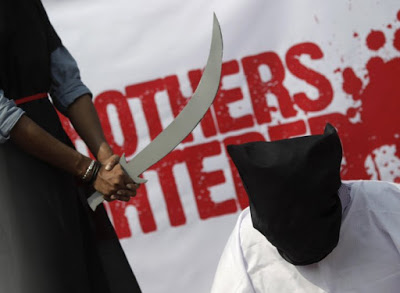
“Prince Turki bin Saud al-Kabir was put to death in the capital Riyadh for shooting dead Adel al-Mahemid, a Saudi, during a brawl,” said a statement released by the Interior Ministry of Saudi Arabia.
The rare event rocketed around the kingdom’s social media networks, with some Saudis saying they never imagined such a thing would happen and others arguing that it showed the quality of their justice system, which follows a strict interpretation of Shariah law and is often criticized by human rights groups and Western governments for what they consider harsh and arbitrary punishments.
“The greatest thing is that the citizen sees the law applied to everyone, and that there are not big people and other small people,” Abdul-Rahman al-Lahim, a prominent Saudi lawyer, wrote on Twitter.
Other Saudis lauded the monarch, King Salman, on Twitter under an Arabic hashtag that translated as, “Decisive Salman orders retribution for the prince.”
Saudi Arabia is one of the world’s few remaining absolute monarchies. The thousands of members of the royal family enjoy perks not available to the rest of the country’s 20 million citizens.
Tuesday’s execution was the first time that a member of the royal family had been put to death for murder by the state since 1975, when Prince Faisal bin Musaid was beheaded in Riyadh for assassinating King Faisal.

Most people are put to death in Saudi Arabia are beheaded with a sword. Saudi Arabia has a strict Islamic legal code under which murder, drug trafficking, armed robbery, rape and apostasy are all punishable by death.
Murder and drug trafficking cases account for the majority of Saudi executions, although 47 people were put to death for “terrorism” on a single day in January this year.
Rights experts have raised concerns about the fairness of trials in the kingdom but the government says the death penalty is a deterrent.















